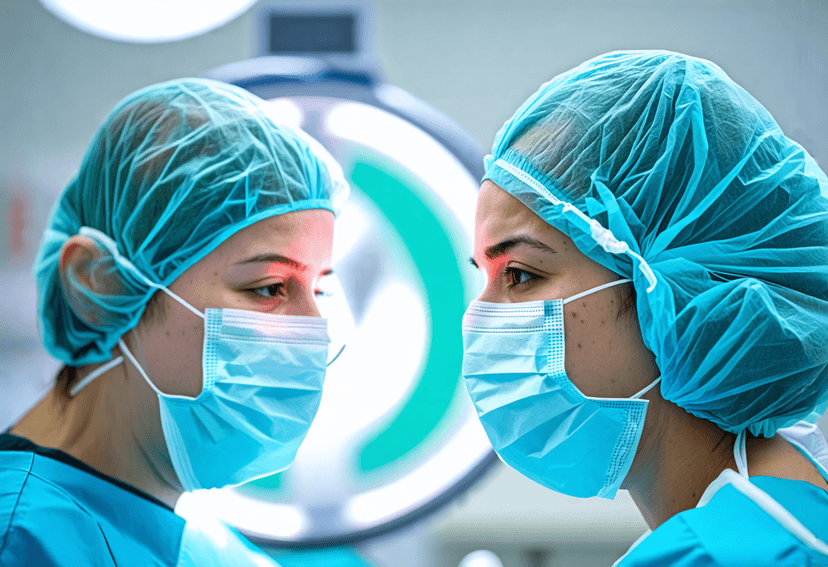
Adenoidectomy Surgery: What to Expect During Recovery
06 Dec, 2024
 Healthtrip
HealthtripAre you or a loved one preparing to undergo adenoidectomy surgery? As a crucial step in treating conditions like sleep apnea, chronic sinus infections, or enlarged adenoids, this surgical procedure can be a game-changer for your health and wellbeing. However, the recovery process can be a daunting prospect, especially if you're unsure of what to expect. At Healthtrip, we believe that knowledge is power, and being prepared for the road ahead can make all the difference in a smooth and successful recovery. In this blog post, we'll delve into the details of what to expect during the recovery period, helping you navigate this critical phase with confidence and ease.
Understanding Adenoidectomy Surgery
Before we dive into the recovery process, it's essential to understand what adenoidectomy surgery entails. This surgical procedure involves the removal of the adenoids, which are small gland-like tissues located at the back of the throat. The adenoids play a crucial role in our immune system, helping to fight off infections during childhood. However, they often shrink and disappear by adulthood. In some cases, the adenoids may become enlarged or infected, leading to breathing difficulties, sleep disorders, and other health complications. Adenoidectomy surgery is a relatively common procedure, usually performed under general anesthesia, and can be done as an outpatient procedure or require an overnight hospital stay, depending on the individual's health and the complexity of the surgery.
Most popular procedures in India
The First Few Days After Surgery
The initial days following adenoidectomy surgery are critical in determining the success of the recovery process. Immediately after the procedure, you can expect to feel groggy and disoriented due to the anesthesia. Your surgeon or anesthesiologist will monitor your vital signs and ensure you're comfortable before discharging you from the hospital or surgery center. In the first 24-48 hours, it's essential to rest as much as possible, avoiding strenuous activities, heavy lifting, and bending. You may experience some discomfort, pain, or numbness in the throat, which can be managed with pain medication and ice packs. Healthtrip's dedicated team will provide you with personalized guidance and support to ensure a smooth transition back home.
Wellness Treatments
Give yourself the time to relax
Lowest Prices Guaranteed!

Lowest Prices Guaranteed!
Managing Pain and Discomfort
Pain management is a crucial aspect of the recovery process. Your surgeon or healthcare provider will prescribe pain medication to alleviate discomfort, which may include over-the-counter pain relievers or stronger medications. It's essential to follow the recommended dosage and schedule to avoid complications. In addition to pain medication, there are several other ways to manage discomfort, such as applying ice packs to the throat, gargling with saltwater, and using a humidifier to reduce throat dryness. At Healthtrip, we understand that every individual's pain threshold is unique, and our team will work closely with you to develop a personalized pain management plan.
Nutrition and Hydration
A well-balanced diet and adequate hydration are vital for a speedy recovery. For the first few days, it's recommended to stick to soft, bland foods like yogurt, scrambled eggs, mashed potatoes, and soups. Avoid spicy, acidic, or sharp foods that can irritate the throat. As you progress, you can gradually introduce more solid foods into your diet. Staying hydrated is equally important, so drink plenty of fluids, such as water, clear broths, or electrolyte-rich beverages like coconut water or sports drinks. Healthtrip's nutrition experts can provide personalized dietary advice and guidance to support your recovery.
Follow-Up Care and Complications
After the initial recovery period, it's essential to attend follow-up appointments with your surgeon or healthcare provider to monitor your progress. These appointments will help identify any potential complications, such as bleeding, infection, or scarring, and address any concerns you may have. In rare cases, complications like bleeding, infection, or scarring may occur. If you experience any unusual symptoms, such as high fever, increased pain, or difficulty breathing, seek medical attention immediately. At Healthtrip, our dedicated team will be with you every step of the way, providing guidance and support to ensure a smooth and successful recovery.
Returning to Normal Activities
As you progress in your recovery, you'll begin to feel more like yourself, and it's essential to pace yourself to avoid setbacks. Most people can return to their normal activities within 1-2 weeks, but this may vary depending on the individual's health and the complexity of the surgery. Avoid strenuous activities, heavy lifting, or bending for at least 4-6 weeks to allow the throat tissues to heal properly. Healthtrip's team will provide you with personalized guidance on when to resume normal activities, ensuring a safe and successful transition back to your daily routine.
Conclusion
Adenoidectomy surgery can be a life-changing procedure, offering relief from breathing difficulties, sleep disorders, and other health complications. While the recovery process may seem daunting, being prepared and knowing what to expect can make all the difference. At Healthtrip, we're committed to providing you with the highest level of care and support, every step of the way. By understanding the recovery process, managing pain and discomfort, and following a well-balanced diet and hydration plan, you'll be well on your way to a smooth and successful recovery. If you have any questions or concerns about adenoidectomy surgery or the recovery process, don't hesitate to reach out to our dedicated team at Healthtrip.
Related Blogs

Adenoidectomy Surgery: The Key to Better Sleep
Learn how Adenoidectomy surgery can improve sleep quality and duration.

Adenoidectomy Surgery: A Solution for Chronic Sinusitis
Discover how Adenoidectomy surgery can provide relief from chronic sinusitis.

Debunking the Myths: Adenoidectomy Surgery
Separate facts from fiction about Adenoidectomy surgery. Learn about the

Adenoidectomy Surgery: A New Lease on Life
Learn how Adenoidectomy surgery can improve overall quality of life,

Adenoidectomy Surgery: A Game-Changer for Breathing Easy
Adenoidectomy surgery can significantly improve breathing, sleep, and overall quality

The Ultimate Guide to Adenoidectomy: What to Expect
Get detailed information about Adenoidectomy surgery, its benefits, risks, and










